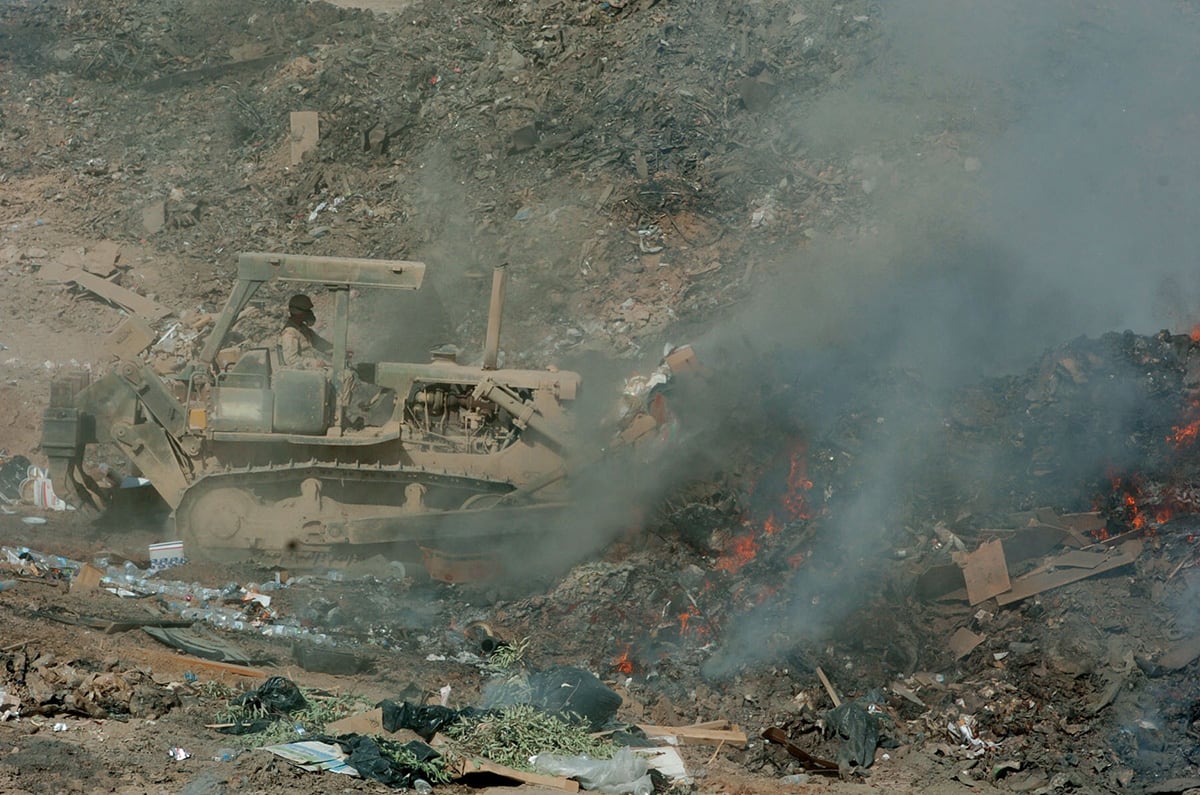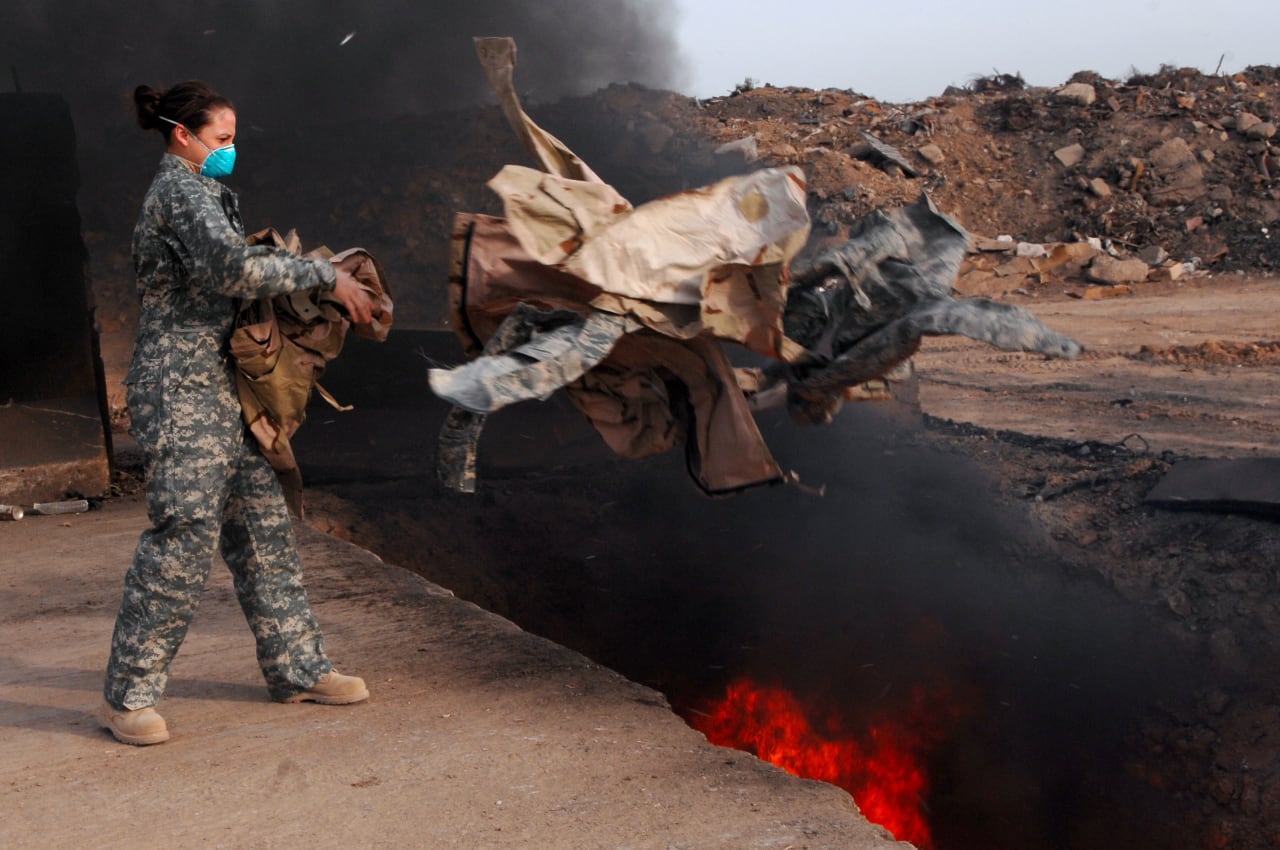Just two months after Veterans Affairs officials launched new medical screenings focused on military toxic exposure issues, about 400,000 veterans have already reported potential health concerns related to those issues, department leaders said Wednesday.
VA physicians have screened more than 1 million patients since the start of November, a total they said surpassed their initial estimates for patient outreach.
The five-minute survey is conducted with all veterans seeking health care within the Veterans Health Administration, and is designed to both look for potential hidden health issues related to military toxic exposure incidents and highlight new benefits available to veterans with related injuries.
RELATED

Of the group already surveyed, 40% have reported possible toxic exposures during their time in service, reflecting the massive scope of the problem.
The list of contaminants includes breathing in smoke from open-air burn pits used throughout Afghanistan and Iraq, working near Agent Orange residue in Vietnam, experiencing elevated radiation levels at various military sites throughout the 1970s and 1980s, and drinking contaminated water at military bases.
When Congress approved the Promise to Address Comprehensive Toxics Act — better known as the PACT Act — last summer, advocates had estimated the benefits included in the legislation could help as many as one in every five living veterans in America today.
But the recent survey results suggest that rate could be even higher.
“These screenings are paramount to improving the health outcomes for veterans and providing them with the health care and benefits they’ve earned as quickly as possible,” VA Under Secretary for Health Dr. Shereef Elnahal said in a release.
“Our health care teams reached an incredible breakthrough in a short length of time … This is among the first steps we have taken to deliver even more benefits and health care to veterans who have been exposed to toxins during their service.”
On Jan. 1, VA officials began processing PACT Act benefits claims for more than 212,000 veterans who had applied since last August. Payouts for those cases are expected to begin in coming weeks, although more complicated claims may take longer.
The legislation included presumptive benefit status for 12 types of cancer and 12 other respiratory illnesses linked to burn pit exposure in the Gulf War, the War in Afghanistan and the War in Iraq.
RELATED

It also provides new benefit status for hypertension and monoclonal gammopathy of undetermined significance (MGUS) among veterans who served in Vietnam and radiation-related illnesses for veterans who served in several new locations in the 1960s and early 1970s.
The cost of providing the benefits is expected to top more than $278 billion over the next 10 years. In addition, VA will spend millions more on research related to the toxic exposures in the hopes of providing quicker and better medical care for long-term health conditions related to the exposures.
The surveys will play a key role in that research work, providing information about what veterans were exposed to and ways to track recurring medical complications that may be related to those contaminants.
More information on the PACT Act is available on the VA’s website or by calling 1-800-MYVA411 (1-800-698-2411).
Leo covers Congress, Veterans Affairs and the White House for Military Times. He has covered Washington, D.C. since 2004, focusing on military personnel and veterans policies. His work has earned numerous honors, including a 2009 Polk award, a 2010 National Headliner Award, the IAVA Leadership in Journalism award and the VFW News Media award.





